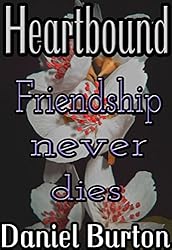Editing? Help is at Hand. Guest Post by Daniel Burton
Editing. It can be a minefield, but
navigating it is essential for making your novel a success. Having
self-published my own novel, Heartbound, in January 2015, I vividly remember
the stress of going through 70 000 words making sure each one was spelt correctly and that each sentence sounds right. Needless to say, the editing
process took a fair bit of time!
Editing is more than just checking your
spelling and punctuation. The plot needs to be tight (no going off at a
tangent!) and the overall layout has to be spot on. Even the smallest details,
like your character‘s eye and hair colour, need checking for consistency.
You’ve heard of going through something with a fine toothcomb, well that is
exactly what editing is and then some!
It might seem tortuous, but editing can
make the difference between a mediocre review and an outstanding 5* review.
Readers will remember the grammar errors and typos a lot more than your
imaginative metaphors and settings, and mark you down accordingly. Fortunately
though, you are not alone!
There are two ways of tackling the editing
process. One way (which I did) is to go through the manuscript yourself.
Nothing wrong with that at all, however there is always the risk that you’ll
miss something. You’ve worked hard for months and months, molding your words
into a literary masterpiece, and it is this connection with your manuscript
that could make you blind to errors. Trust me, I know!
Help is at hand, though! Copy editors are
always willing to help make your already great work even better, and they can
save you a lot of stress. A neutral pair of eyes can pick up those subtle
errors that might have escaped your attention. Some say that the relationship
between a copy editor and an author is like a marriage; you naturally will have
to feel you can trust the editor to do a good job and there might well be
disagreements, but you work through them.
I believe that having a good copy editor,
whom you can trust and believe in, is like having a best friend; they will
guide you, support you and hopefully have some laughs along the way! Yes, a
copy editor will charge you a fee, but it is a worthwhile investment; a great
copy editor will have your best interests at heart and will want the manuscript
to succeed just as much as you do.
I love to help people, including authors. Alongside
my own novel writing, I am also a copy editor. You could say I have the best of
both worlds! As well as editing, I can also write press releases and blog
posts. For manuscript editing, I typically charge £10 per 1000 words. Blog
posts cost £2.50 per 100 words, short documents (like synopses and cover
letters) cost £5 per document, website content costs £5 per webpage and press
releases cost £15.
Editing can be fun! Whether you choose to
go through the manuscript yourself or go with a copy editor, have that
publication goal in the forefront of your mind; keep thinking about seeing your
book on the shelves or an e-reader and you can achieve that dream of being an
author. It is such a great feeling, and the editing stage is an essential rung
on that ladder. To find out more about what I can do for you, check out the
links below.
Happy Writing!
YouTube Video: https://www.youtube.com/watch?v=EbRS0M9xwnc
Website: http://dburtonediting.weebly.com/
Facebook: https://www.facebook.com/dburtonediting
Twitter: @dburton_editing





Comments
!!!
Just as 'naturalistic dialogue' is, in fact, anything but natural. Discuss, with and without exclamation marks.
In my humble opinion if someone is going to pay to purchase my books then I have an obligation to make it the best that I can. I'd demand nothing less from any other author.